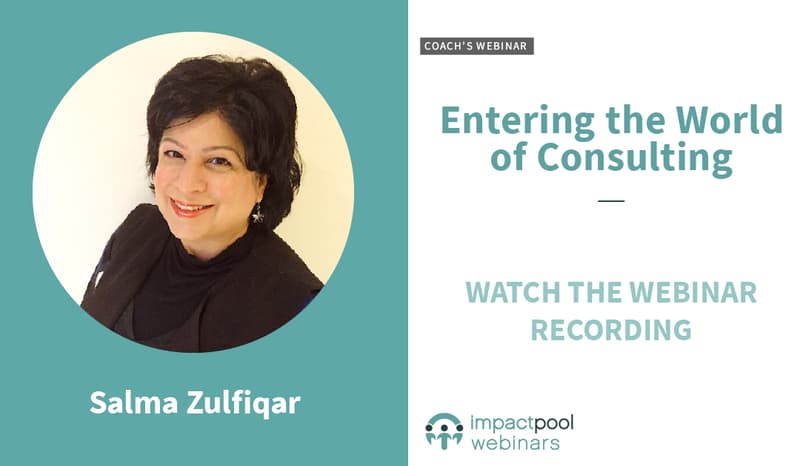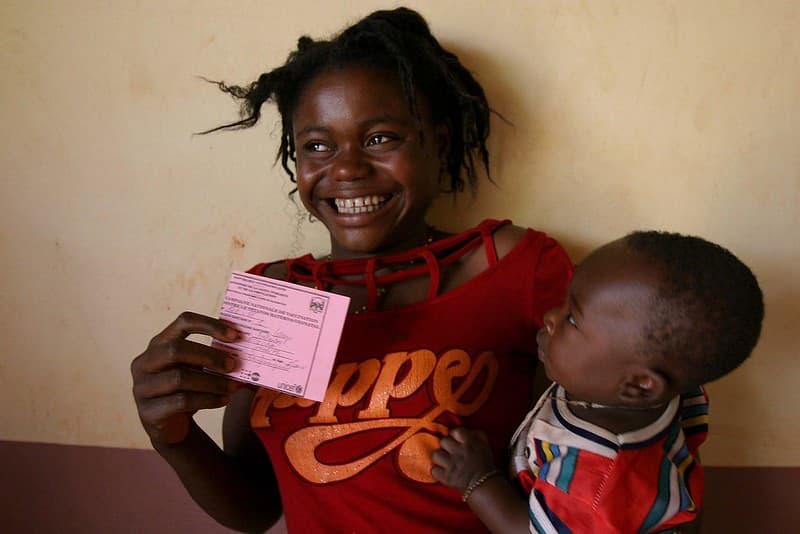Monitoring, Reporting and Verification Senior Specialist
Home Based - May require travel
- Organization: UNIDO - United Nations Industrial Development Organization
- Location: Remote | Home Based - May require travel
- Grade: Level not specified - Level not specified
-
Occupational Groups:
- Border and Customs
- Communication and Public Information
- Internal audit, Investigation and Inspection
- Monitoring and Evaluation
- Documentation and Information Management
- Closing Date: 2023-12-06
Requisition ID: 3171
Grade: ISA-Senior Specialist
Country: Home Based
Duty Station: Home Based
Category: International Consultant
Type of Job Posting: Internal and External
Employment Type: Non-staff WAE
Contract Duration: 30 to 35 working days (over a period)
Application Deadline: 06-Dec-2023, 11:59 PM (CEST)
Vacancy Announcement
TEMPORARY APPOINTMENT OF PROJECT PERSONNEL
Female candidates are encouraged to apply.
ORGANIZATIONAL CONTEXT
The United Nations Industrial Development Organization (UNIDO) is the specialized agency of the United Nations that promotes industrial development for poverty reduction, inclusive globalization and environmental sustainability. The mission of UNIDO, as described in the Lima Declaration adopted at the fifteenth session of the UNIDO General Conference in 2013 as well as the Abu Dhabi Declaration adopted at the eighteenth session of UNIDO General Conference in 2019, is to promote and accelerate inclusive and sustainable industrial development (ISID) in Member States. The relevance of ISID as an integrated approach to all three pillars of sustainable development is recognized by the 2030 Agenda for Sustainable Development and the related Sustainable Development Goals (SDGs), which will frame United Nations and country efforts towards sustainable development. UNIDO’s mandate is fully recognized in SDG-9, which calls to “Build resilient infrastructure, promote inclusive and sustainable industrialization and foster innovation”. The relevance of ISID, however, applies in greater or lesser extent to all SDGs. Accordingly, the Organization’s programmatic focus is structured in four strategic priorities: Creating shared prosperity; Advancing economic competitiveness; Safeguarding the environment; and Strengthening knowledge and institutions.
Each of these programmatic fields of activity contains a number of individual programmes, which are implemented in a holistic manner to achieve effective outcomes and impacts through UNIDO’s four enabling functions: (i) technical cooperation; (ii) analytical and research functions and policy advisory services; (iii) normative functions and standards and quality-related activities; and (iv) convening and partnerships for knowledge transfer, networking and industrial cooperation. Such core functions are carried out in Departments/Offices in its Headquarters, Regional Offices and Hubs and Country Offices.
The Directorate of Technical Cooperation and Sustainable Industrial Development (TCS), headed by a Managing Director, oversees the Organization's development of capacities for industrial development as well as industrial policy advice, statistics and research activities and the Organization's normative contribution to Member States and global development community in achieving the SDGs. The Directorate also ensures the application of strategies and interventions for sustainable industrial development related to Environment, Energy, SMEs, Competitiveness and Job creation, as well as Digitalization and Artificial Intelligence. Through coordination in-house and with Member States and industry stakeholders, it ensures that the services provided in these areas contribute toward effective and appropriate technical, business and policy solutions and are focused on results and on realizing any potential for scaling up and positioning UNIDO as a leading platform for industrial development in developing countries and global fora.
The Directorate houses the technical Divisions of Capacity Development and Industrial Policy Advice (TCS/CAP); Circular Economy and Environmental Protection (TCS/CEP); Decarbonization and Sustainable Energy (TCS/DSE); SMEs, Competitiveness and Job Creation (TCS/SME); and Digital Transformation and AI Strategies (TCS/DAS). The Directorate also ensures close coordination and collaboration among the Divisions as well as with relevant entities in the Directorate of Global Partnerships and External Relations (GLO) and the Directorate of SDG Innovation and Economic Transformation (IET).
The Division of Circular Economy and Environmental Protection (TCS/CEP) contributes to greener and more circular industries and products by minimizing both resource use along value chains and the emission of pollutants to the environment.
The Division promotes just transitions to circular economies, reduced release of pollutants into the environment and other green industrial and economic approaches to help Member States to grow economically while simultaneously addressing the three planetary crises of climate change, biodiversity loss and pollution. It does so by supporting resource efficiency increases in the manufacturing and use of products along value chains and during the life cycle of the product; by reducing or eliminating the emission of non-fuel-related greenhouse gas emissions; and by assisting in achieving the objectives of and compliance with multilateral environmental agreements. In doing so, its activities further improve competitiveness, as well as the development of and access to markets, particularly for SMEs. This contributes to climate-neutral, resilient, pollution-free industrial development, supporting co-existence that is in harmony with nature.
This position is located under the Circular Economy and Resource Efficiency Unit (TCS/CEP/CER) which is responsible for supporting capacity development to scale up and mainstream the production of sustainable products and adoption of circular and resource-efficient cleaner patterns of consumption and production along value chains, circular economy policies, programmes, and practices, including circular business models that improve the profitability of industries while creating social and environmental benefits. In addition, it promotes nature-based solutions and ecosystem-based approaches for inclusive and sustainable industrial development (ISID) that support the co-existence of industries in harmony with nature. In addition, it facilitates the design of sustainable products made with fewer materials, with greater durability, reliability, reparability, reusability and recyclability, and supports the deployment of new business models that improve environmental performance.
PROJECT CONTEXT
The project entitled “Private sector transition to a green and circular economy in Lebanon” or “2Circular” (210028) will contribute to a reform, recovery and reconstruction Framework (3RF) for Lebanon. The framework prepared by EU, WB and UN in consultation with government, donor and civil society, following the Beirut explosion in August 2020, aims building back better of Lebanese economy with promoting growth and job creation. The project funded by EU is executed by UNIDO. Through the project, EU and UNIDO collaborate to strengthen private sector and support “Startups, Micro and Small Enterprises, including women-led enterprises, develop sustainable, socially and gender responsive green and circular economy business models”.
With the overall objective of transitioning to green and circular economy, the project embraces Transfer of Environmentally Sound Technology (TEST); resource efficient production and sustainable consumption following Circular Economy (CE) approach; facilitating access to finance and the mobilization of investments into resource efficient and circular solutions; and developing a clear methodology and framework for data collection and reporting on GHG emissions (MRV system), energy and resource use in industry.
A wide range of stakeholders namely from public sectors (Ministries, governmental authorities etc.), international financing as well as development organizations, private sector organizations and academia are involved to ensure effective deliverable and ownership at a national level for the transition to a green and circular economy in Lebanon.
The project’s PMU is established in Lebanon, and it is made of an Industrial Development Expert (IDE) – Project Lead, a national Liaison and Resource Efficiency Officer, a Project Administrative Assistant, all based in Lebanon and a Technical Project Coordinator based in Vienna. The whole team is directly supervised by the UNIDO Project Manager based at UNIDO HQ in Vienna.
The Ministry of Environment of Lebanon, in partnership with the United Nations Development Programme (UNDP), is currently establishing the national Enhanced Transparency Framework (ETF) for Lebanon with technical and financial support from the Capacity Building Initiative for Transparency (CBIT), funded by the Global Environment Facility (GEF). The initiative aims at identifying institutional responsibilities and processes that the country needs to establish and operate in order to track progress on climate-related actions, steer towards its climate goals committed though National Determined Contributions and enable biennial reporting under the Transparency Framework of UNFCCC’s Paris Agreement.
UNIDO ”2Circular” Project, within its component supporting the Ministry of Industry in leading a green and circular transition of the Lebanese industrial sector, complements and integrates the establishment of the National Transparency Framework by designing and testing a sectorial MRV framework for Industrial Processes and Product Use (IPPU). The MRV system will include institutional arrangements, data management systems, protocols and operational and technical guidelines for MRV of GHG Emissions, Mitigation Actions and Support in the industrial sector, in compliance with guidelines of the United Nations Framework Convention for Climate Change (UNFCCC), the Intergovernmental Panel on Climate Change (IPCC) and the provisions of Paris Agreement. The designed MRV system will be tested at Facility level on a sample of Food and Beverage manufacturing companies selected among those that benefited from UNIDO technical assistance.
UNIDO is looking for a MRV Senior Specialist, accredited in the UNFCCC Roster of Experts, for conducting the initial scoping study and develop a detailed action plan for designing, establishing and testing the MRV system, which will include a detailed set of activities, resources needed, work-plan and tentative budget.
Under direct supervision of the Industrial Development Expert and in close coordination with other members of the PMU, the incumbent will carry out the following tasks:
MAIN DUTIES
- Desk review and proposal of study strategy, approach, methodology and detailed work plan.
- Get acquainted, also through interviews with relevant stakeholders, with the national context, identify and analyze the institutional and legal frameworks and current practices, relevant to the institutional MRV/ Transparency Framework system in Lebanon.
- Review in collaboration with the MoE of all existing data sources, methodologies, systems and processes for Measuring, Reporting, and Verifying: 1) GHG Emissions and Removals, 2) Mitigation Actions, and 3) Support (received in the country), as well as processes for reporting under the Convention and transitioning to Paris Agreement’s provisions.
- Identify needed relationships between the national MRV/Transparency Framework and the sectorial MRV for IPPU.
- Identify institutions operating in the industrial sector with relevant MRV competences, their potential roles and responsibilities, as well as possible corresponding gaps.
- Provide the analysis of IPPU categories in Lebanon.
- Identify main legal and regulatory improvements needed for establishing the sectorial MRV system for IPPU in relation with the national Transparency Framework.
- Develop IPPU sectorial MRV strategy defining vision, goals, principles, scope, approach, roles and responsibilities for implementation (consider stakeholders’ workshops as needed).
- Propose a detailed action plan for the establishment and operationalization and testing of the sectorial MRV system for IPPU, identifying all necessary activities[1], resources needed for implementation, time-frame and tentative budget (consider stakeholders’ workshops as needed).
Mission/s to:
Lebanon
(or on-line meetings/workshops if field mission will not be cleared for security reasons)
MINIMUM ORGANIZATIONAL REQUIREMENTS
Education: Advanced university degree in relevant discipline (natural sciences, engineering, economics, climate change, public policy, law or a relevant field is required.
Technical and Functional Experience:
- A minimum of 10 years of practical experience in GHG emissions accounting, development of GHG inventories, quality control and quality assurance procedures, development of MRV systems, climate change mitigation, and climate change policy analysis is required.
- Minimum experience of 5 years working on the development of MRV systems for industrial sector and categories related to IPPU is highly desirable.
Languages: Fluency in written and spoken English is required.
Fluency and/or working knowledge of another official UN language is desirable.
REQUIRED COMPETENCIES
Core values:
WE LIVE AND ACT WITH INTEGRITY: work honestly, openly and impartially.
WE SHOW PROFESSIONALISM: work hard and competently in a committed and responsible manner.
WE RESPECT DIVERSITY: work together effectively, respectfully and inclusively, regardless of our differences in culture and perspective.
Key competencies:
WE FOCUS ON PEOPLE: cooperate to fully reach our potential –and this is true for our colleagues as well as our clients. Emotional intelligence and receptiveness are vital parts of our UNIDO identity.
WE FOCUS ON RESULTS AND RESPONSIBILITIES: focus on planning, organizing and managing our work effectively and efficiently. We are responsible and accountable for achieving our results and meeting our performance standards. This accountability does not end with our colleagues and supervisors, but we also owe it to those we serve and who have trusted us to contribute to a better, safer and healthier world.
WE COMMUNICATE AND EARN TRUST: communicate effectively with one another and build an environment of trust where we can all excel in our work.
WE THINK OUTSIDE THE BOX AND INNOVATE: To stay relevant, we continuously improve, support innovation, share our knowledge and skills, and learn from one another.
[1] Essential activities for building blocks of MRV systems, including: establishing institutional arrangements, needed legal and regulatory improvements, development of data management systems, development of methodological and technical regulations and guidelines, and building capacities.
This appointment is limited to the specified project(s) only and does not carry any expectation of renewal.
Employees of UNIDO are expected at all times to uphold the highest standards of integrity, professionalism and respect for diversity, both at work and outside. Only persons who fully and unconditionally commit to these values should consider applying for jobs at UNIDO.
All applications must be submitted online through the Online Recruitment System. Correspondence will be undertaken only with candidates who are being considered at an advanced phase of the selection process. Selected candidate(s) may be required to disclose to the Director General the nature and scope of financial and other personal interests and assets in respect of themselves, their spouses and dependents, under the procedures established by the Director General.
Visit the UNIDO website for details on how to apply: www.unido.org
NOTE: The Director General retains the discretion to make an appointment to this post at a lower level.
Notice to applicants:
UNIDO does not charge any application, processing, training, interviewing, testing or other fee in connection with the application or recruitment process. If you have received a solicitation for the payment of a fee, please disregard it. Vacant positions within UNIDO are advertised on the official UNIDO website. Should you have any questions concerning persons or companies claiming to be recruiting on behalf of UNIDO and requesting payment of a fee, please contact: recruitment@unido.org








